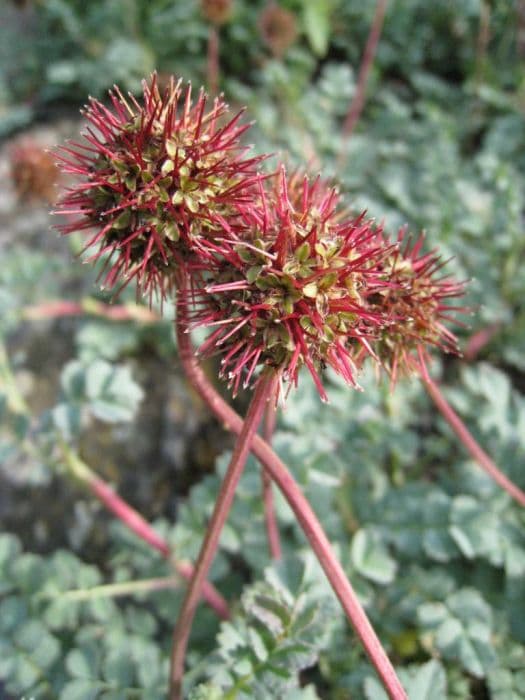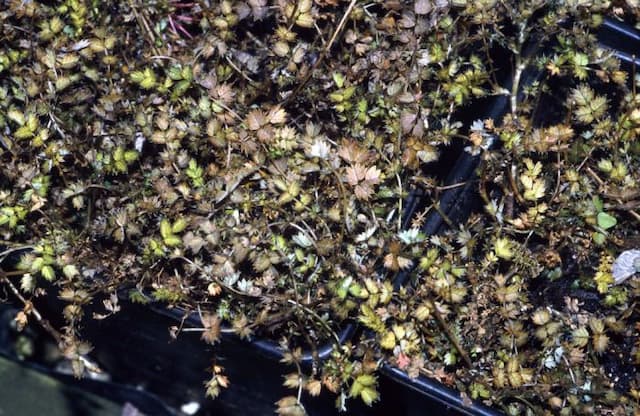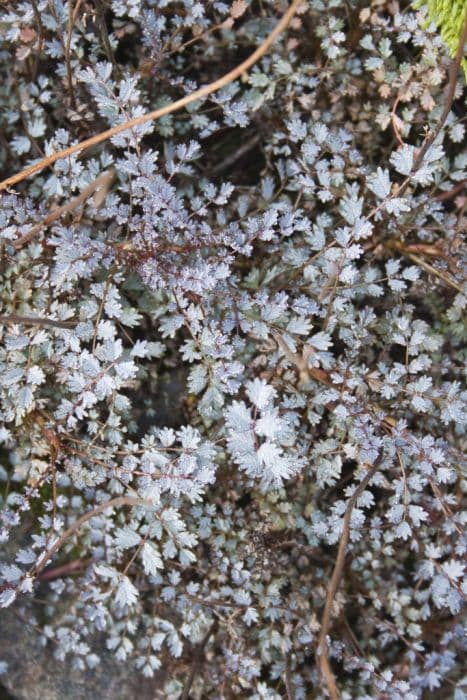Apple 'Howgate Wonder' Malus domestica 'Howgate Wonder' (C)

ABOUT
'Howgate Wonder' is a very large, late-season, heavy cropping, culinary apple with a very mild flavour. It is partially self-fertile, in pollination group 3, and vigorous. Fruit is yellow-green flushed with red, and the skin has a greasy finish
About this plant
 Names
NamesFamily
Rosaceae
Synonyms
Howgate Wonder Apple
Common names
Malus domestica 'Howgate Wonder'.
 Characteristics
CharacteristicsLife cycle
Perennials
Foliage type
Deciduous
Color of leaves
Green
Flower color
White
Height
10-15 feet [3-4.5 meters]
Spread
12-15 feet [3.6-4.5 meters]
Plant type
Tree
Hardiness zones
5
Native area
Asia
Benefits
 General Benefits
General Benefits- Large Fruit Size: 'Howgate Wonder' apples are known for their large size, making them a popular choice for cooking and baking.
- Honeyed Flavor: The apples have a sweet, slightly tangy taste with a honeyed flavor, which is ideal for desserts and eating fresh.
- High Productivity: This cultivar often produces an abundant crop, offering a plentiful harvest from each tree.
- Storage Potential: The apples store well and maintain their quality over time, allowing for extended use through the winter months.
- Disease Resistance: 'Howgate Wonder' has some resistance to common apple diseases, making it a hardy choice for the orchard.
- Ornamental Value: With attractive blossoms in spring and a dense canopy, it provides aesthetic value to gardens and landscapes.
- Pollination Partner: Being a good pollinator for other apple varieties, it helps increase the yield of nearby apple trees.
- Adaptability: It can adapt to a range of climates and soil types, making it a versatile choice for growers in many regions.
- Community Engagement: Planting and maintaining an apple tree like 'Howgate Wonder' can be a community-building activity, involving local gardening groups and schools.
- Culinary Versatility: The fruit can be used in a variety of recipes, from pies and crumbles to ciders and sauces.
 Medical Properties
Medical Properties- Source of fiber: The flesh of apples, including that of the Howgate Wonder variety, contains dietary fiber which can aid in digestion and help maintain a healthy gut.
- Rich in vitamins: Apples are known for their vitamin content, especially vitamin C which can contribute to the immune system's health.
- Antioxidants: Apples contain various antioxidants, such as quercetin, which are believed to have a protective effect against oxidative stress and may contribute to overall health.
- Cardiovascular health: Consuming apples has been associated with a modest reduction in the risk of cardiovascular disease, likely because of the combination of fiber, vitamins, and antioxidants.
 Air-purifying Qualities
Air-purifying QualitiesThis plant is not specifically known for air purifying qualities.
 Other Uses
Other Uses- Woodworking: The strong, dense wood of the apple tree can be used for crafting small wooden objects such as handles, craft items, and inlays.
- Natural Dyes: The bark, leaves, and fruit of the apple tree can be used to make natural dyes for fabrics, yarn, and other materials.
- Composting: Fallen apples and pruned branches can be added to compost piles to enrich garden soil with organic matter.
- Homemade Pectin: Apples have naturally high levels of pectin, which can be extracted and used for making homemade jams and jellies.
- Wildlife Habitat: Apple trees can provide habitat and food for various bird species, insects, and small mammals.
- Smoking Wood: Apple wood chips are favored in smoking meats for their sweet, fruity smoke flavor.
- Garden Stakes: Pruned branches from the apple tree can be repurposed as garden stakes for supporting other plants.
- Culinary Vinegar: Overripe or unsightly apples can be fermented to make apple cider vinegar.
- Livestock Feed: Fallen apples can serve as feed for pigs, horses, and other farm animals.
- Photography & Art: Apple blossoms, fruit, and the tree itself can serve as subjects for photography and botanical illustration due to their aesthetic appeal.
Interesting Facts
 Feng Shui
Feng ShuiThe apple tree is not used in Feng Shui practice.
 Zodiac Sign Compitability
Zodiac Sign CompitabilityThe apple tree is not used in astrology practice.
 Plant Symbolism
Plant Symbolism- Knowledge: The 'Howgate Wonder', commonly known as the apple, often symbolizes knowledge. This association comes from the biblical story of Adam and Eve, where the apple represents the fruit of the Tree of Knowledge.
- Immortality: Apples have been symbols of immortality and eternal youth across various mythologies, such as the Norse legends, where gods ate golden apples to stay young.
- Love and Desire: The apple can also be a symbol of love and desire. This is seen in classical mythology where apples appear in stories associated with love and beauty, like the Apple of Discord in Greek mythology.
- Abundance and Prosperity: As a fruit that can be harvested in abundance, apples often represent prosperity and fertility, providing sustenance and nourishment.
- Peace: In some cultures, the apple is a symbol of peace and harmony, echoing the sentiment that sharing an apple can build friendships and alliances.
 Water
WaterHowgate Wonder apple trees require consistent moisture, especially during their growing and fruiting seasons. Generally, young trees should be watered once a week with about 5 gallons of water, ensuring that the root zone is thoroughly soaked. Adult trees may need water less frequently, but with larger amounts such as 10 to 15 gallons, depending on the weather conditions. During prolonged dry spells, additional watering may be necessary. It's important to reduce watering in the late fall to help the tree harden off before winter, but do not allow the soil to become completely dry.
 Light
LightHowgate Wonder apple trees thrive in full sunlight, needing at least six hours of direct, unfiltered sunlight each day. The best spot to plant them is in an open area away from larger trees or buildings that could cast shade. These trees will produce the most fruit when planted in a location that receives abundant sunshine throughout the day.
 Temperature
TemperatureHowgate Wonder apple trees grow best in an environment with a temperature range between 32°F to 75°F. They can withstand winter temperatures as low as -20°F once established but are susceptible to frost damage during their bloom period in the spring. For optimal growth and fruit production, a site with moderate summer temperatures is ideal, avoiding extreme heat.
 Pruning
PruningPruning a Howgate Wonder apple tree is essential for promoting good air circulation, sunlight penetration, and encouraging a strong tree structure. Prune in late winter while the tree is dormant, removing any dead, diseased, or crossing branches, as well as any suckers or watersprouts. Annual pruning helps maintain the tree's shape and increases fruit yield. The best time for substantial pruning is late winter to early spring before new growth begins.
 Cleaning
CleaningAs needed
 Soil
SoilThe best soil mix for an apple tree like 'Howgate Wonder' should be well-draining, loamy, and rich in organic matter. A pH between 6.0 and 7.0 is ideal for this variety.
 Repotting
RepottingApple trees such as 'Howgate Wonder' typically do not require repotting as they are grown outdoors and can live in the same location for many years.
 Humidity & Misting
Humidity & MistingApple trees like 'Howgate Wonder' are adaptable to outdoor conditions and do not require specific humidity levels, but they prefer a moderate climate.
 Suitable locations
Suitable locationsIndoor
Grow 'Howgate Wonder' apple tree indoors with ample light; dwarf rootstock only.
Outdoor
Plant 'Howgate Wonder' in full sun, well-drained soil, and space adequately.
Hardiness zone
4-8 USDA
 Life cycle
Life cycleThe 'Howgate Wonder' apple variety (Malus domestica 'Howgate Wonder') begins life as a seed, but it is typically propagated by grafting to ensure genetic consistency. After grafting, the young sapling enters a growth phase where it develops a strong root system and vegetative structures including leaves and stems. Flowering occurs in the spring, with the tree producing fragrant white or pink flowers that, once pollinated by bees, develop into fruit. Throughout the summer, the apples mature, reaching full size and color, typically a greenish-yellow with red streaks. The apples are typically harvested in the autumn, at which time the tree begins to prepare for dormancy by shedding leaves. Over winter, the tree is dormant but still alive, enduring cold conditions until temperatures rise again in the spring, restarting the cycle with new vegetative growth and flowering.
 Propogation
PropogationPropogation time
Late winter to early spring
The most common method of propagating the Howgate Wonder apple tree, which is a cultivar of Malus domestica, is through grafting. Grafting is best done in late winter or early spring. In this process, a scion, which is a young shoot or twig from the Howgate Wonder apple tree, is carefully joined to a rootstock of another apple tree that has desirable growth traits, such as disease resistance or hardiness. The two parts are cut to fit together and then bound tightly with special grafting tape or a similar material, which holds the scion in place while the graft heals. The new tree will combine the fruiting characteristics of the Howgate Wonder with the rootstock's advantageous traits, ensuring a more resilient and productive tree.









